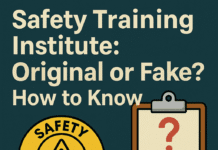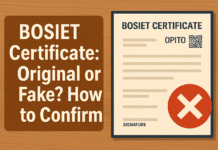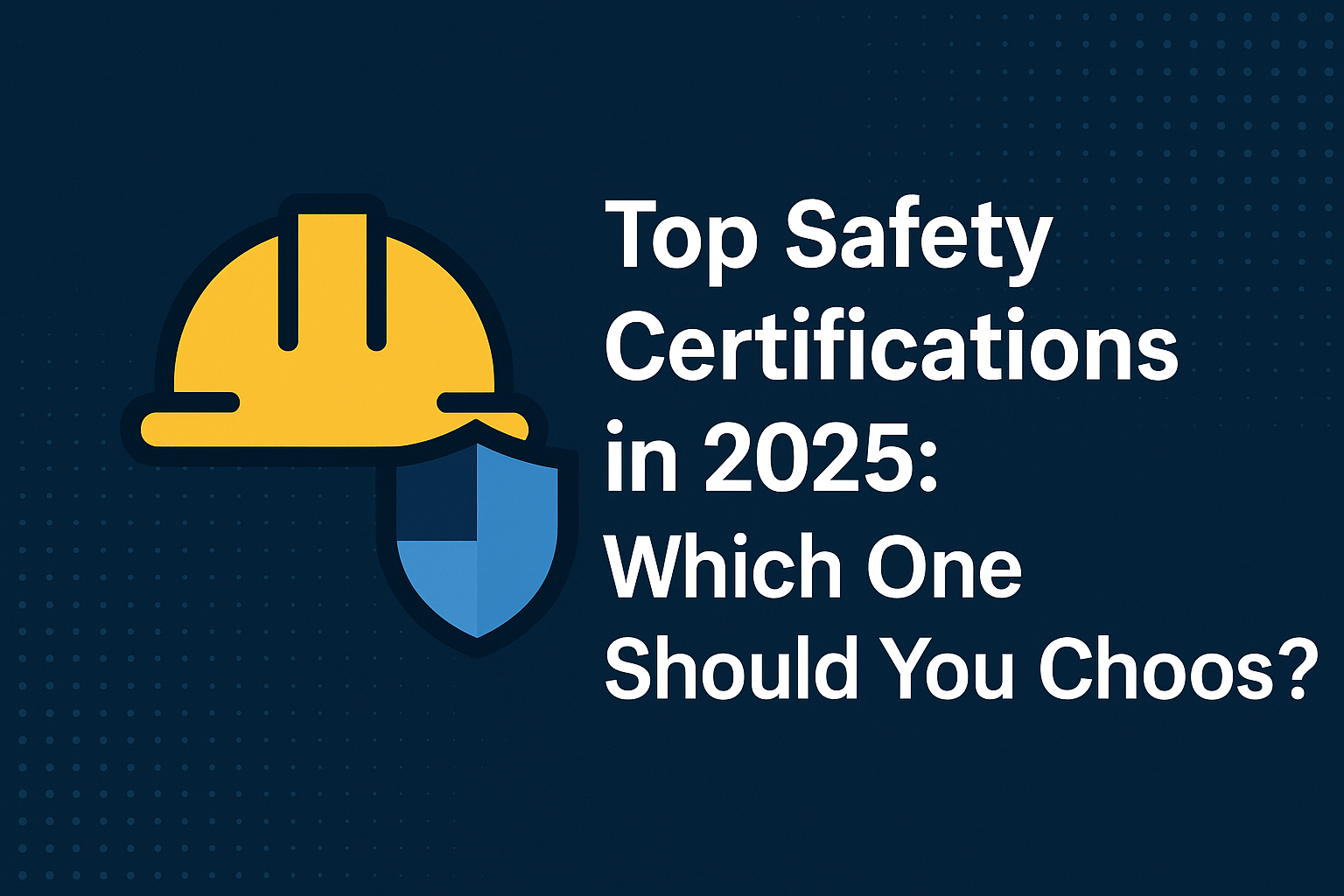
Certified Safety Professional Course Fees
1. Introduction
In today’s world, safety is of paramount importance in various industries. Employers across sectors are keen on hiring individuals who can ensure the well-being of their employees and comply with safety regulations. One of the most sought-after certifications in the field of safety is the Certified Safety Professional (CSP) designation. This article delves into the details of CSP course fees and its significance in shaping a successful career in safety management.
2. Understanding CSP
The Certified Safety Professional (CSP) certification is offered by the Board of Certified Safety Professionals (BCSP). It is internationally recognized and validates an individual’s knowledge and expertise in safety management and risk assessment. Obtaining the CSP designation demonstrates a commitment to ensuring a safe work environment, making it a valuable asset for aspiring safety professionals.
3. Importance of Safety
Safety plays a pivotal role in preventing workplace accidents, injuries, and fatalities. Employers are increasingly acknowledging the significance of maintaining a safe work environment, leading to a surge in demand for qualified safety professionals. CSP certification equips individuals with the necessary skills to implement safety protocols effectively and mitigate potential hazards.
4. Benefits of Certification
Achieving CSP certification offers numerous advantages. It enhances career prospects by making professionals more marketable to employers. Certified individuals often receive higher salaries and are considered for leadership roles due to their specialized knowledge in safety management. Additionally, the CSP designation fosters a sense of confidence and credibility among peers and employers.
5. CSP Course Structure
The CSP certification process consists of rigorous training and examination. The course covers various aspects of safety, including hazard control, emergency response planning, regulatory compliance, and risk assessment. It is divided into multiple modules, each focusing on different areas of safety management.
6. Course Fees and Options
Certified Safety Professional Course Fees : The course fees for the Certified Safety Professional (CSP) certification can vary depending on the training provider and the mode of learning chosen by the candidate. On average, the total cost of obtaining CSP certification ranges from $1,000 to $2,500.
The fees typically cover the following aspects:
- Study Materials: Course fees usually include access to study materials such as textbooks, online resources, practice exams, and study guides. These materials are essential for candidates to prepare thoroughly for the CSP examination.
- Instructor-Led Training: Many training providers offer instructor-led training sessions, either in-person or online. These sessions provide valuable insights, clarification of doubts, and guidance from experienced safety professionals.
- Examination Costs: The CSP certification process involves taking a comprehensive examination to assess the candidate’s knowledge and expertise in safety management. The examination fees are generally included in the course fees.
- Additional Resources: Some training programs may offer supplementary resources, workshops, or webinars to enhance the candidate’s understanding of safety concepts and application.
It is important to note that while the CSP course fees represent a significant investment in one’s career, the certification opens doors to a wide range of rewarding job opportunities in the field of safety management.
Candidates may explore various training providers and compare their offerings and fees to find the program that best suits their learning preferences and budget.
For individuals seeking financial assistance or scholarships to pursue CSP certification, there are opportunities available through various organizations and government agencies. These financial aids aim to support aspiring safety professionals and make their career goals more attainable.
Overall, obtaining the Certified Safety Professional (CSP) certification is a valuable step towards a successful and fulfilling career in the field of safety management. It not only demonstrates a commitment to safety but also equips professionals with the skills and knowledge necessary to create safer work environments and make a positive impact on the industry.
7. Financial Assistance
Recognizing the importance of safety professionals, many organizations and government agencies offer financial assistance or scholarships to individuals pursuing CSP certification. Candidates can explore these opportunities to alleviate the financial burden and make their career aspirations more achievable.
8. Career Opportunities
CSP certification opens doors to a wide range of career opportunities. Graduates can find employment in industries such as construction, manufacturing, healthcare, oil and gas, and transportation. Job roles may include safety manager, risk assessor, safety consultant, compliance officer, and more.
9. Tips for Success
Studying for the CSP exam requires dedication and commitment. Here are some tips to ensure success:
- Develop a study plan and stick to it.
- Take practice exams to gauge your knowledge.
- Engage in group discussions with fellow candidates.
- Stay updated with the latest safety regulations and industry trends.
- Seek guidance from experienced safety professionals.
10. Conclusion
In conclusion, obtaining the Certified Safety Professional (CSP) designation can be a transformative step in one’s safety career. The certification not only enhances job prospects but also equips professionals with the necessary skills to create safer work environments. Investing in CSP training is a valuable decision that can lead to a rewarding and fulfilling career in safety management.
FAQs
- Q: Is the CSP certification internationally recognized?A: Yes, the CSP certification is recognized worldwide and is highly regarded by employers.
- Q: How long does it take to complete the CSP certification?A: The time to complete the CSP certification varies depending on the individual’s pace and chosen study method. On average, it may take several months of dedicated study.
- Q: Can I apply for financial aid to cover the course fees?A: Yes, many organizations and agencies offer financial assistance or scholarships to support individuals pursuing CSP certification.
- Q: What are the career prospects after obtaining the CSP designation?A: CSP-certified professionals have a wide range of career opportunities in various industries, including construction, healthcare, and manufacturing.
- Q: How often is recertification required for the CSP designation?A: CSP certification is valid for five years, after which recertification is required through continuing education or retaking the exam.
























